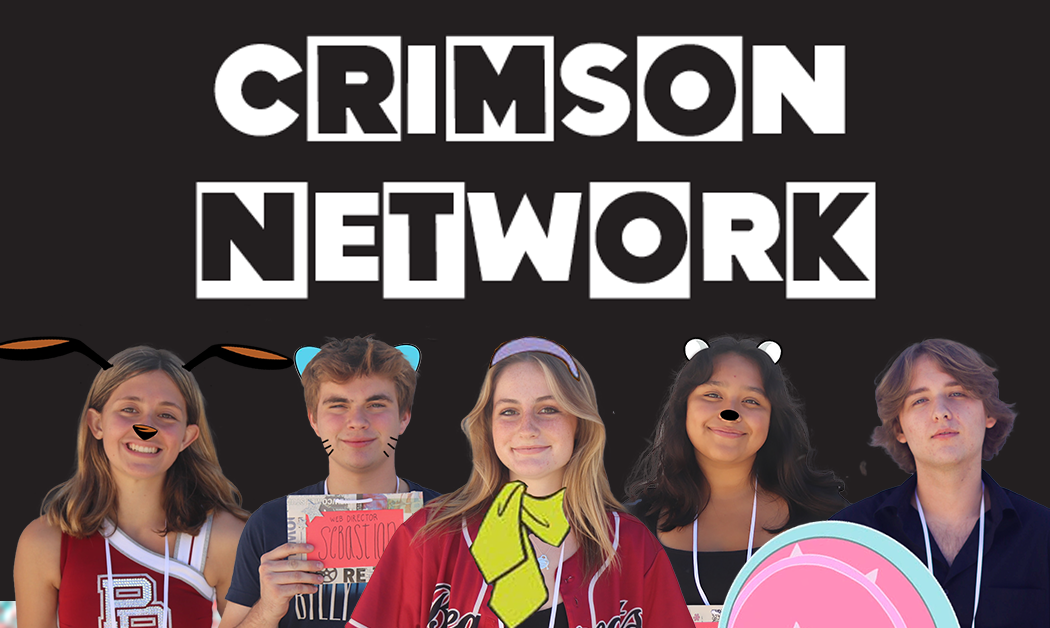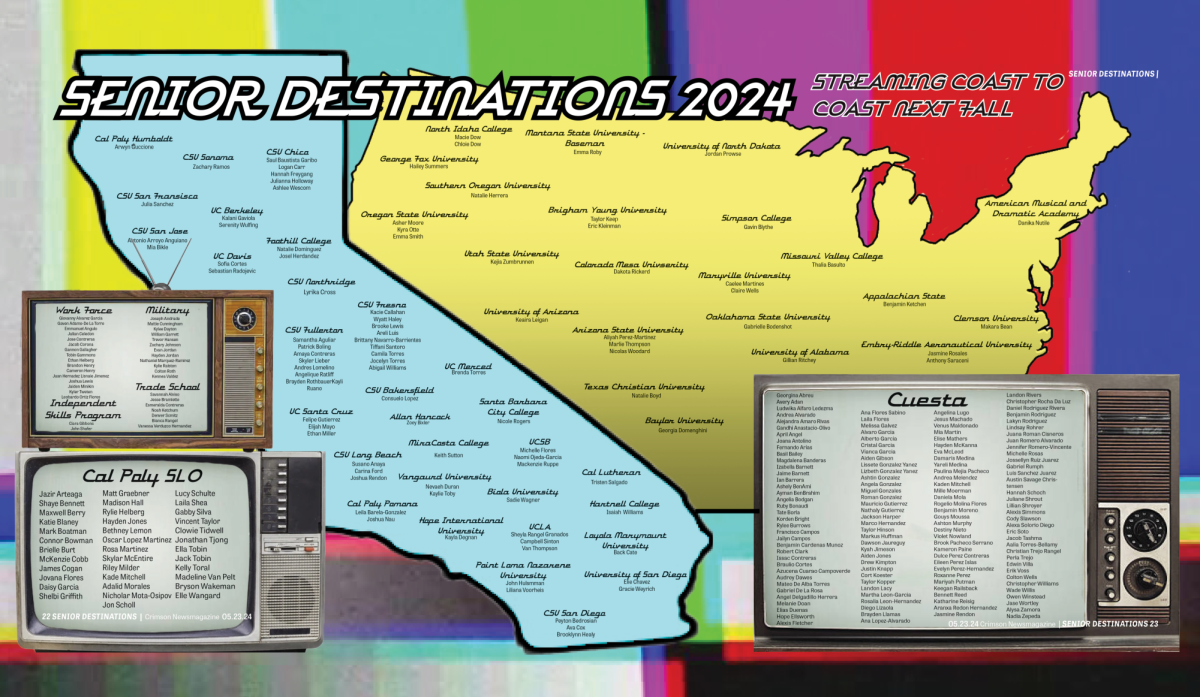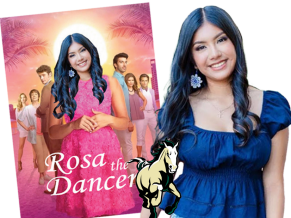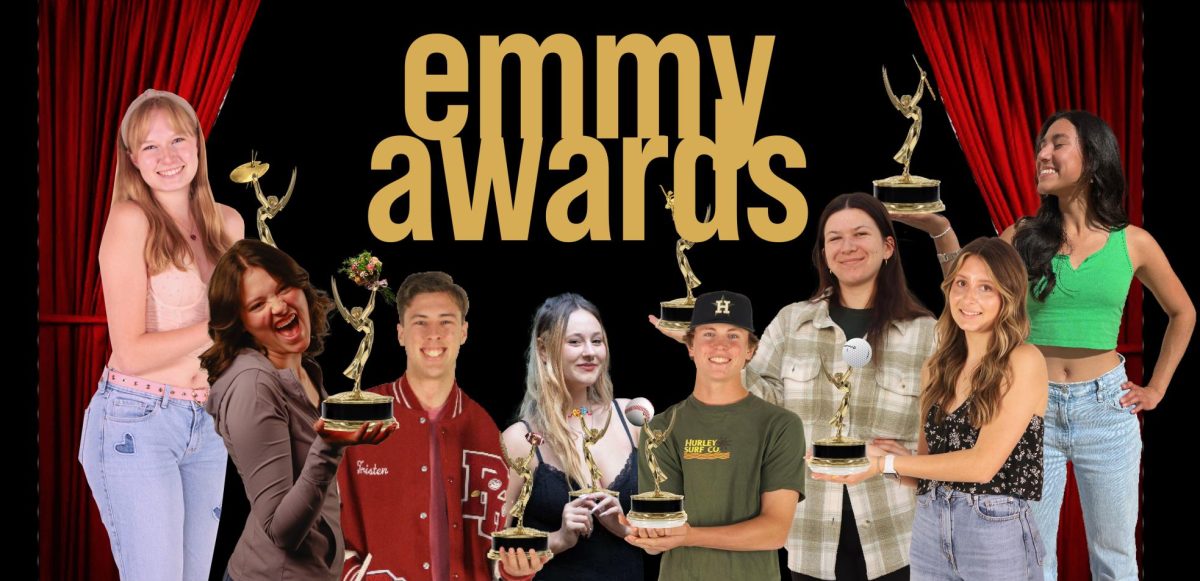
As an earlier movement, feminism has afforded women the opportunity to vote, to become educated, and the ability to be equal to men. Today, feminism, a controversial topic for this new generation of men and women, has had bad press on social media platforms and has become a politically significant topic.
The feminism of yesterday was more inclusive and used media and pop culture to promote ideas. This third wave brought feminism closer to the lives of people. The focus of this wave was to shed light on the pay gap, body image, and eating disorders according to the National Women’s History Museum
The feminism of today is called Cyber-Feminism, which uses social media to take action against sexism and misogyny, with modern pillars of feminist discussion including the #MeToo movement and the recent 2023 Barbie movie. The #MeToo movement was in response to the case of Harvey Weinstein, a Hollywood producer accused of sexual harassment, with women replying #MeToo to display the frequency of sexual misconduct, especially in the workplace. The Barbie movie showcases a reimagining of feminism that doesn’t ignore the struggles of men and also has the ability to empower women, and its release brings renewed discussion on modern feminism to the lives of teenagers.
Despite feminism’s definition focusing on equality, it seems the modern iteration has become a polarizing topic with its continued misinterpretation due to outspoken feminists who have turned into “men-haters”, as termed by ABC News.
According to the Pew Research Center, 61% of women say the term feminist describes them well. In the same study, however, 45% of women say feminism is a polarizing issue.
Amanda Caffery PRHS science teacher, described herself as an advocate for women’s rights “I would consider what feminism is supposed to be as not polarizing in any way, shape, or form,” she said. “It is supposed to be inclusive and uniting. I would say that it has been politicized to actually be used against us as females. So I would say due to other people’s agendas, it’s been political.”
Marcy Goodnow, theater teacher, agreed. I think it is misinterpreted by most. Some believe you can only support one group, but I believe there is room to support all. — Marcy Goodnow
This confusion is well-documented at PRHS: when surveying students 52.3% said they were not feminists, but when feminism was defined as male and female equality, 90.6% of students said they were feminists.
An increasingly common thought process, however, is that feminism has gone too far and that women no longer face major issues based on gender alone.
After all, feminism has helped women like Kamala Harris rise to the ranks of Vice President, arguably the second most powerful position in America. If a woman can get there, some argue, is it really fair to assume there are major issues working against women?
Proponents of modern feminism, however, highlight the struggles women do seem to face. Through politics, women struggle with the rising cost of feminine products and low wages compared to their male counterparts. Feminized staple items including razors, deodorant, and shampoo used on a daily basis are marked at a higher cost in local drugstores than the average man equivalent due to the pink tax. Along with the pink tax, there is the gender pay gap according to the research conducted by the Pew Research Center where women get paid less for the same job a man has. Similarly, the media seems to run rampant with feminist-based content, with the “feminist” hashtag on Instagram hosting over 8 million posts and being updated daily.
With increased political polarization, politics and media surrounding feminism have made it harder for women and students to call themselves feminists.


Taking a deeper look at the pink tax and its effect on women
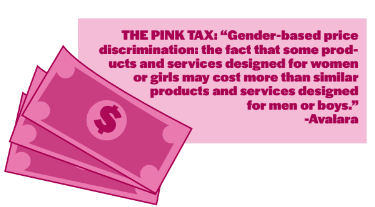
She picks up a double shift to barely get enough to pay rent. On her way back home she stops by the store to buy her daughter some preschool toys. She looks at the prices and realizes she is paying 0.9% more than what she would be paying for a boy’s toy. It turned out it wasn’t just toys. In 2015, a study in New York City revealed that women paid $14.92 more than men did for bikes and scooters, general toys, backpacks, preschool toys, helmets and pads, and arts and crafts supplies. This phenomenon is called the pink tax.
The pink tax has been a popular issue since the 1990s (Avalara) and it has affected women, especially those of low income who just wanted to get by but the pink tax became a huge obstacle for them.
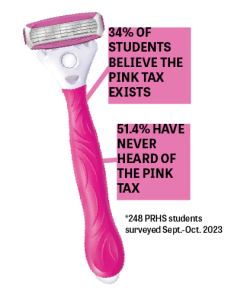
When asking students in a survey of 248 students on campus if they had heard of the pink tax, 51.4% of the students said they hadn’t heard of the pink tax. Whereas 48.6% said they had heard of it. In that group, 5.3% of students think it’s fake, 9.3% believe it’s not based on systemic sexism, and the remaining 34% believe it is real and based on systemic sexism.
“While I personally haven’t dealt with the pink tax, I’ve definitely seen it played out, though the major problem with combating the pink tax is that many products marketed towards women don’t have a one-to-one equivalent to a product marketed towards men,” Gandhi Anastacio said.
Senior Lilian Shroyer says she has experienced the pink tax. “I have had to pay more because I buy girl razors,” Shroyer said.
However, according to “Blankrate”, the state of California has passed two laws that prohibit price discrimination toward women. The Gender Tax Repeal Act of 1995 demanded merchants to charge men and women equally for similar products (. Taking action on January 1, 2023,” California Civil Code § 51.14 prohibits charging a different price for any two goods that are substantially similar if those goods are priced differently based on the gender of the individuals for whom the goods are marketed and intended” (Westlaw Today).
our investigation
To put this to the test, Crimson reporter Michelle Rosas investigated our local Walmart and Target to see if there were still any differences between the cost of basic products people use. She discovered the following:
“I went to buy what would be considered products women need every couple of months and I did the same with men to compare the prices.
For women, I looked for products such as deodorant, shampoo, conditioner, toothpaste, socks, underwear, bras, and tampons. For men, I looked at deodorant, shampoo, conditioner, toothpaste, socks, and underwear. I wanted to see how much more a woman has to pay for these needs.
After purchasing these items all ranging from the same or very similar price, women ended up paying $61.74 and men ended up paying $53.16. This means that in this experiment women pay $8.50 more than men.
Based on the information gathered, women don’t pay more money for things such as deodorants, lotion, or razors for the most part. However, there are still things like skirts that cost more than pants do.
I went to Walmart as well and noticed that clothing for women and girls cost more at times. For the most part, school uniforms all cost the same but I found that some skirts for school uniforms cost $4.32 more than some boys shorts. Out of curiosity, I wanted to do further research. According to an article by The Courier, “on average, girls’ uniforms cost 11.8% more than boys’. For primary school students, the average cost of boys’ uniforms is £130.81 whereas for girls it is £150.14.””
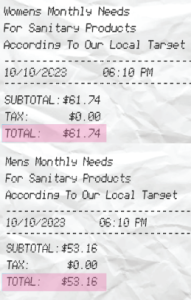
![]()
Bearcats share their takes on the systemic problems women face
Women have been faced with inequalities and gender discrimination, such as not having the right to vote up until the late 1900s, having limited options for work, and not having equal pay. The question of whether women are oppressed in society is still relevant and has been frequently talked about in and outside of the feminist movement. The issue, however, goes deeper than if women can vote or if they get paid less.
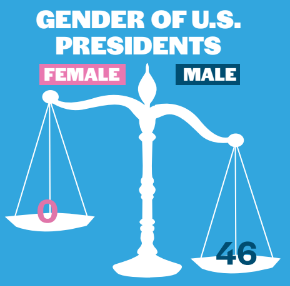 If we examine women in politics we can see that there has yet to be a woman as president. The 2020 – 2024 election was the first election to ever have a woman as vice president. Could the lack of representation for women in politics be considered discrimination or oppression? What type of role do women have in politics?
If we examine women in politics we can see that there has yet to be a woman as president. The 2020 – 2024 election was the first election to ever have a woman as vice president. Could the lack of representation for women in politics be considered discrimination or oppression? What type of role do women have in politics?
In a survey of 248 students, when responding to the question, “Do women and men have an equal role in society?,” the majority (61.9%) said that they both face their own unique issues but neither one has it worse in society. If not roles, what could be the reason for the lack of representation?
An article written by Free Network says that ”women are less encouraged to run for office than men.” They state this is the reason why we don’t see women in politics as much. However, some students believe it is because women are not given the proper chance to be viewed the same as men in politics.
When asked about her take on women in politics, senior Natalie Herrera says that both men and women have been “caught up” into thinking that men are stronger and should be in charge. She says this could be a reason why men tend to have higher positions of power in our political system.
“I feel like they aren’t taking us seriously and people will say women are too emotional,” she said. She also says that a lot of the times when there is an opening for a job, both a man and a woman could have the same qualifications, but they are most likely to pick the man or look at the man’s profile first because men are typically seen as the “stronger sex.”
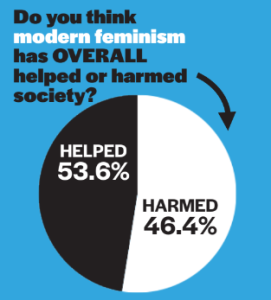
This idea is deep-rooted in our society- throughout all of history, men were more often than not leaders in politics while women who could afford to often stayed in the home. Some argue this as additional evidence that women have biologically evolved to be homemakers while men evolved to be leaders, from our earliest iterations thousands of years ago.
Religion, too, is a major factor: 1 Timothy 2:11-14 from the New International Version of the Bible states: “A woman should learn in quietness and full submission. I do not permit a woman to teach or to assume authority over a man; she must be quiet. For Adam was formed first, then Eve. And Adam was not the one deceived; it was the woman who was deceived and became a sinner.”
Pew Research Center estimates that 65% of Americans identify as Christian- and though not all of that number likely agree with those beliefs, devout and traditional Christians do, and this can affect the overall perception of women.
Modern audiences argue, that those beliefs are limiting ones and women’s so-called submission in history was a result of their pressures rather than any sort of biological or natural inclination to do so, and further, they shouldn’t be forced into any sort of role.
Senior Gandhi Anastacio says that there are more issues built for women by society. “I do think that women are set at a disadvantage because of societal structures and institutions, more so than men are, given phenomena like the pink tax and the various double standards which women are expected to live up to,” he said. He mentions that these issues increase for women of color, trans women, disabled women, and women of other minority groups.
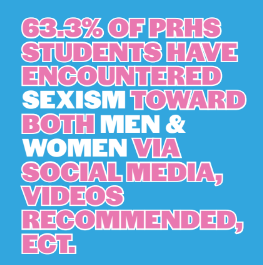
An article by MedPageToday states that the gender wage disparity or gender pay gap can become a financial burden for a lot of women. This can lead to women having to choose between necessary healthcare or their financial well-being. The article also states that “women earn around $0.82 for every dollar men make; Black and Latinx women earn even less, $0.70 and $0.65, respectively, relative to white men,”.
 Alongside Herrera, Anastacio says “I don’t think women are often treated fairly in politics, with their voices often being diminished, infantilized, ignored by the giant majority of men who make up the political world and political elite.”
Alongside Herrera, Anastacio says “I don’t think women are often treated fairly in politics, with their voices often being diminished, infantilized, ignored by the giant majority of men who make up the political world and political elite.”
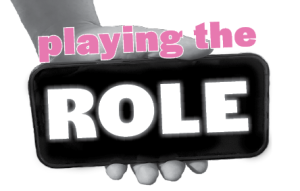
As algorithms feed teens their endless stream of phone content, one might notice the focus on gender: one video could be a thoughtful song about girlhood, yet with the swipe of a finger watch a Barbie movie takedown because too “woke.”
A confusion and controversy now surrounds the term “feminist” or “feminism”. Women and the perception of women have been altered due to diverse opinions on social media and modern bending of social constructs. Social influencers like Andrew Tate, who promotes an obedient traditionally feminine role of women, feeds an audience that believes in this idea of women.
Yet more “woke” and modern representations of women, a more “brave and powerful” woman, appear in the modern adaptation of Snow White.
Content and media about women and girls have led to great confusion regarding feminism. Teenagers are fed with different ideas about what feminism is and how it affects society, contributing to a misunderstanding of what a feminist , and womanhood, truly are.
Between such poles, students appear confused. In a September 2023 survey of 216 students, 50.5% of recipients would not call themself a feminist. When asked if they believe in female and male equality, however, 91.6% of responses said they did, displaying a confusion around the term, According to a survey of 216 PRHS students.
Senior Eve Barajas, former Equality Club president and current secretary, confirmed that feminism’s true meaning has been altered by the media.
“I do think that certain people have taken it (feminism) too far, but at that point can you even consider it feminism?” Barajas asked .
“With all political ideals and movements of the day, it’s typically the loud minority that’s recognized. And so what people see and report on is the people who are doing it extremely, or the people who are getting things wrong,” Barajas said.
This confusion of modern feminism being “too far” and “man-hating” has beneficially evolved from the outdated expectation of obedient, home-based women. Yetthe “bad parts” of modern feminism have effectively convinced many people that the traditional roles of women are the only one they should stick to.
Andrew Tate and other tradition-focused content creators have millions of followers and are often quoted describing how their ideal women should remain pure homemakers that steer away from the sexual promiscuity and career focused independence. They assert men and women should mostly stick to their more traditional roles, often believing men should be the main protectors and women should be the primary nurturers.
With the term “feminist” receiving multiple descriptions, more are shying away from the original meaning.

Junior Ethan Castelli believes men and women should have equal rights, he is not a self-proclaimed feminist. Castelli associates of marches and riots with feminists
“They don’t really shout for a main purpose, they just shout to be heard. In history women were fighting for a purpose like voting rights. Nowadays I just don’t see what they’re asking for,” he said.
When Castelli sees Andrew Tate on social media he recognizes the effect it has on others.
“I think it is pretty stupid. He promotes treating women however you want and thinks that you can take women and use them for their body. He affects women by affecting men,sort of like a domino effect. It tips onto one generation of guys and then it pushes down on women..
When junior Skylar Collins spoke about her understanding of Andrew Tate she felt he saw women living their own lives as “shameful” and “inappropriate” while degrading their individual success.
“Unfortunately look through the school, you can see all these teenage boys listening and putting more thought into some random man on the internet, then a girl who is actually living their life as a woman. They would rather listen to some stranger online just wanting to get money from his podcast, then a girl who has actually experienced misogyny. That is really interesting,” Collins said.
“There is a certain idea set up by certain men, that you have to be feminine to be good. And it is one of the biggest stems of shame from wanting feminine things and

wandering to be feminine. But that’s the way it’s always been for women and maybe that’s where this modern feminism stemmed from,” Collins said.
“Woke” ideology of feminism t has also raised controversy with its new ideas and representations.
The new live action “Snow White” movie has made its way into the media and is stirring the pot with its depiction of a “stronger” and “brave” princess. According to the lead actress Rachel Zegler, this new version of Snow White will include more leadership, power and independence with an ending that leaves out being saved by a prince.
Collins believed that new characters like Katniss Everdeen have influenced stories. Everdeen, a brave and independent woman in the Hunger Games series, brought new light to women’s traditional role in popular movies.
But Collins is concerned with confusing characters like Katniss to characters like Snow White. When movies try to make women like Snow White act more like Katniss, Collins believes we are yet again putting women into a box of expectations.
“She (Rachel Zegler) kinda made it seem like women should feel ashamed if they’re not badass, because ‘we don’t live in old times’ and it makes it seem like if you believe in femininity, then you believe in misogyny,” Collins said.
When new influence such as social media or film is introduced to the projection of feminism more beliefs and opinions are available and presented as the “truth”. This leads to diverse influence and ultimately the controversial stance on women in our modern society.
“My stereotypical view of modern feminism is the bad things that people see such as misandry and rejection of femininity. My idea of what modern feminism should be and what it was originally supposed to be: raising women up to the level where they can be whatever they want to be in the same way a man can be. But I guess it just hasn’t gone that way for some people,” Barajas said.

